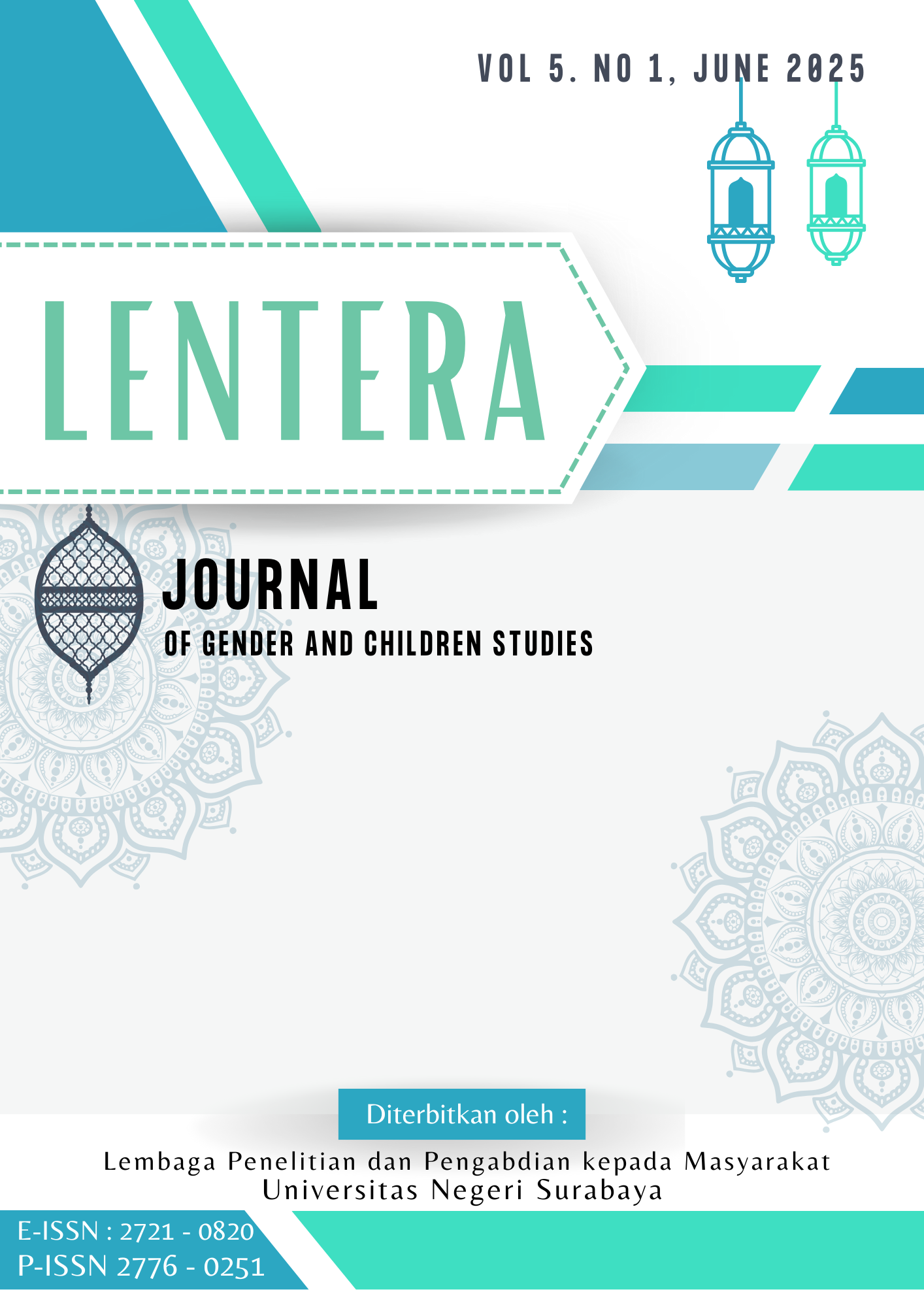PEKKA, FEMINIZATION OF POVERTY AND SOCIAL INEQUALITY
Abstract
Life in densely populated residential areas located in the heart of a metropolitan city such as Surabaya City, is highly dependent on work income outside the home. While income growth is much slower than development and has destroyed the use value of the environment, it is inevitable. Finally, the phenomenon of modernized poverty becomes unavoidable. The condition becomes even more discriminatory when it is pointed out that most of the poor household heads living in this area are women. This paper aims to explain the social injustice practices of women heads of poor households in urban areas by using class analysis, cultural analysis, gender analysis, and critical analysis that aims to provide the meanings, conceptions, ideologies, and practices that are happening in female heads of poor households in urban areas. The reality of social injustice experienced by women heads of poor households is an issue that cannot be covered up anymore about future social conditions. Theoretical analysis born from this fact has sparked a variety of critical thinking. First, class analysis tries to understand the form of economic injustice and its relation to the broader social system. The process of industrialization and urbanization has contributed to the instability of urban society. Secondly, Gramsci's thought discusses ideology and culture and challenges both because they are considered tools and part of those who benefit from perpetuating injustice. Gramsci saw that this condition was born because there was an effort to maintain power by the ruling and capitalist classes, in the sense that it was not only limited to state authorities but all dominant groups in society, called hegemony. The third idea is supported by the critical theory of the Frankfurt school, which questions the methodology and epistemology of positivism as a source of injustice. What needs to be done is to fight the hegemony that demeans women, by deconstructing ideology.
Keywords: Female Heads of Poor Households, Feminization of Poverty, Social Injustice.
References
Abdullah, I. (2003). Sangkan paran gender. Yogyakarta: Pustaka Pelajar.
Cervera-Marzal, M. (2022). Hegemony: A useful concept in times of crisis. Soundings: An Interdisciplinary Journal, 105(1), 1–27.
Ellacuría, I. (1993). Systematic theology: Perspektif from liberation theology. New York: Orbis Book.
Faqih, M. (2005). Analisis gender dan transformasi sosial. Yogyakarta: Pustaka Pelajar.
Fusaro, L. (2022). Gramsci: Concepto de hegemonía nacional e internacional. Ola Financiera, 15(42), 197–235.
Hatibie, Y. (2024). Pertentangan kelas dalam novel Bumi Manusia karya Pramoedya Ananta Toer. Reduplikasi: Jurnal Penelitian Pendidikan Bahasa Indonesia, 4(2), 90–115.
Illich, I. (2002). Matinya gender (Terj.). Yogyakarta: Pustaka Pelajar.
Matsui, Y. (2002). Perempuan Asia: Dari penderitaan menjadi kekuatan. Jakarta: YOI.
Megawangi, R. (1999). Membiarkan berbeda. Bandung: Mizan.
Mercado, S., Havemann, K., Sami, M., & Ueda, H. (2007). Urban poverty: An urgent public health issue. Journal of Urban Health, 84(Suppl 1), 7–15.
Moleong, L. J. (2001). Metodologi penelitian kualitatif. Bandung: Remaja Rosdakarya.
Ribotta, S. (2023). Poverty as a matter of justice. The Age of Human Rights Journal, (20), 7327–7340.
Risnawati, R., Anshari, A., & Abidin, A. (2016). Pertentangan dan kesadaran kelas dalam novel Bumi Manusia karya Pramoedya Ananta Toer (Pendekatan teori Marxis). Retorika, 9(1), 68–79.
Ritzer, G. (2012). Teori sosiologi: Dari klasik sampai perkembangan terakhir postmodern. Yogyakarta: Pustaka Pelajar.
Simon, R. (2016). The conflict paradigm in sociology and the study of social inequality: Paradox and possibility. Theory in Action, 9(1), 1–31.
Singarimbun, M., & Efendi, S. (1995). Metode penelitian survei. Jakarta: LP3ES.
Syam, N. (2009). Model analisis teori sosial. Surabaya: IAIN Press.
Umar, N. (1999). Argumen kesetaraan jender: Perspektif Al-Qur’an. Jakarta: Paramadina.
Downloads
Published
How to Cite
Issue
Section
 Abstract views: 275
,
Abstract views: 275
, PDF Downloads: 467
PDF Downloads: 467



